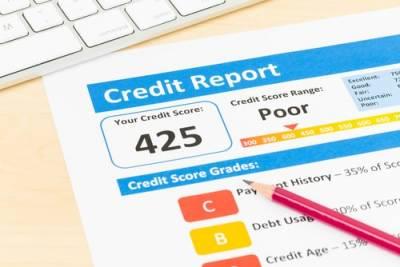How Can I Increase My Credit Score After Filing for Bankruptcy?
 Your credit score is an important figure that can play a role in multiple different areas of your life. A low credit score could affect your ability to obtain a loan such as a home mortgage, and your credit report may also play a role in issues such as housing or employment. If you are considering bankruptcy, you may be concerned about how it would affect your credit score. Fortunately, if you do receive debt relief through bankruptcy, this can provide you with the ability to begin rebuilding your credit, allowing you to pursue opportunities in the future.
Your credit score is an important figure that can play a role in multiple different areas of your life. A low credit score could affect your ability to obtain a loan such as a home mortgage, and your credit report may also play a role in issues such as housing or employment. If you are considering bankruptcy, you may be concerned about how it would affect your credit score. Fortunately, if you do receive debt relief through bankruptcy, this can provide you with the ability to begin rebuilding your credit, allowing you to pursue opportunities in the future.
How Bankruptcy Affects Your Credit Score
Bankruptcy will cause your credit score to decrease significantly, and having a bankruptcy on your credit report may be an indication to creditors that you may not qualify for certain types of loans. However, if you are considering bankruptcy, you are likely already struggling with debt, and missing payments on loans, credit cards, or other bills will also decrease your credit score. Ultimately, it may be more beneficial to go ahead with bankruptcy and then take steps to build your credit score back up once you have regained financial stability.
Ways You May Be Able to Increase Your Credit Score
Following bankruptcy, the best ways to improve your credit rating involve demonstrating that you are financially responsible. You can do so by making sure you consistently pay all your bills on time. You can also make sure you are prepared for emergencies by building up your savings as much as possible and avoiding unnecessary purchases.
Obtaining new loans and making payments on these debts is another good way to increase your credit score. While some companies may be hesitant to offer you a credit card following bankruptcy, you may have some options, such as obtaining a secured credit card that will require you to put down a certain amount of money first. Credit-builder loans are another option, and in these types of loans, you will make monthly payments for a certain period of time, after which you will be able to access the amount you have paid in a savings account.
Rebuilding your credit will often take time, but by avoiding the use of credit cards whenever possible, making regular loan payments, and paying off any balances you do have, you can demonstrate that you will be able to repay loans that you may receive in the future. While a bankruptcy will remain on your record for seven to 10 years, a history of responsibly handling money for multiple years will eventually outweigh the negative effects of bankruptcy.
Contact Our New Braunfels Debt Relief Attorney
If you want to learn more about whether filing for bankruptcy is the right choice for you, the Law Offices of Chance M. McGhee can answer your questions, explain your options, and ensure that you follow the right steps to receive the debt relief you need. Contact our Kerrville, TX bankruptcy lawyer today at 210-342-3400 to schedule your free consultation.
Sources:
https://www.experian.com/blogs/ask-experian/how-to-build-credit-after-a-bankruptcy/
https://www.forbes.com/advisor/credit-score/rebuilding-credit-after-bankruptcy/
https://www.creditkarma.com/advice/i/how-to-build-credit-after-bankruptcy






